Before we begin…
When’s the last time you took a good long look at your body and considered the stories it might tell you if you were prepared to listen? If a pathologist had only your lifeless corpse stretched out on a table before her, what could she deduce about the life you led? What would remain a mystery?
Leave a comment
Welcome! You’ve reached Spark. Learn more here or just read on. If you received this from a friend, please join us by subscribing. It’s free! All you have to do is press the button below. If you have already subscribed, welcome back! BTW, If this email looks truncated in your inbox, just click through now so you can read it all in one go.
Subscribe now
Leave a comment
Thank you!
Thank you for your wonderful response to last week’s newsletter. Some wonderful books were mentioned in the comments section along with some generous insight about conflict and writing. I drew three names at random from those who commented to win a year’s subscription to Courtney Cook’s Survival By Book. Congratulations and happy reading to the following members of our community:
Rosalynn Tyo
Sandra DeHelen
Charlotte Dune
The Full Body Scan Challenge
This week’s focus is inspired by Sandra Butler’s essay, “Full Body Scan,” which appeared in Oldster Magazine this week. With directness, humor, and not a little bit of pride, Butler invites us to stand before a full length mirror with her as she surveys the landscape of her 83-year-old body. We come to understand how she once saw her body, how she sees it now. We catch a glimpse of her story as told by her ears, her breasts, her thighs, her newly painted toenails.
If read quickly, this appears to be an essay for women about aging, about body acceptance but that would be missing the larger theme which is this: the body is our partner in the world. Our bodies shape our lives and our lives leave tracks on our bodies. Each dent, scar, freckle, muscle, digit, or follicle offers a bit of history, a story. Age is irrelevant. A snapshot of a body - younger, older, male, female, trans, or nonbinary is a snapshot of where that body is in the course of its journey. At any moment, that course could be altered. A friend recently told me how a diagnosis in her fifties changed how she approached her relationships, and her decision-making. Her body had a direct impact on the years that followed.
We are quite happy to follow fictional or real forensic specialists or sleuths as they assemble the stories told by a dead body. It may be another thing entirely to consider the stories contained in our own living bodies. Twice since reading Butler’s essay, I’ve tried to do my own body scan before a mirror and have failed to complete it. I’m easily distracted – by my jaw which cracks and creaks after years of clenching, by the realization that my vision is actually better now than it was when I was eight years old, by the memories triggered by the barely susceptible scar on my abdomen. I’ve discovered in myself a reluctance to sit still and listen to the stories my body might tell me if I weren’t so focused on fixing it or making sure it can still perform.
What about you? Are you up for the full body scan challenge?
When is the last time you spent quality time with your body? Would you say you are on speaking terms with the corpus that has housed you, carried you, hurt you, pleasured you, worked for you? What stories can your body tell you about yourself and your encounters with the world? Or, if that’s too overwhelming, think about one body part, one freckle, or one scar. What memories and experiences are triggered when your attention rests there for just a minute?
Two short reads that land a big impact
When Patrick Healy of the New York Times interviewed Angela Lansbury about a sensitive subject in 2009, he learned lessons in candor and empathy that helped him with parents years later. His essay, “How a Phone Call With Angela Lansbury Changed Me,” is a deeply touching and really helpful read. Let me know if for any reason you can’t open it and I will send you a pdf copy.
This interview with “NYC’s Happiest Supermarket Cashier” by Anne Kadet of Café Anne was a joy to read. Ever since I read this piece, I’ve been asking myself “What would Diane do?” Who is Diane? Read on. It’s short, sweet without being saccharine, and, yes, inspiring.
Books
Finished…
My Dyslexia by poet Philip Shultz. I finished this short volume two weeks ago. I have known people with dyslexia and forms of it pop up in my extended family. I have never fully understood what exactly dyslexia means. I do know that people who have it use their brains in entirely different ways which, in the right conditions, can lead to creativity and “out-of-the-box” thinking. I have been curious about writers with dyslexia and came across Shultz’s book.
Schultz, a prize-winning poet and teacher, did not know why his brain worked the way it did until he reached mid-life. He had suffered greatly at the hands of teachers and other students who didn’t understand it either. He still suffers from anxiety, particularly in stressful situations that range from encountering a neighbor whose name refuses to roll off his tongue to reading his work before an audience. I have other reasons for trying to understand more about artists, specifically writers, with dyslexia and look forward to exploring this more with you in the future. In the meantime, here is a poem from Philip Schultz, “Afterwards.”
Afterwards by Philip Schultz
Suddenly everything feels afterwards, stoic and inevitable, my eyes ringed with the grease of rumor and complicity, my hands eager to hold any agreeable infatuation that might otherwise slip away. Suddenly it’s evening and the lights up and down the street appear hopeful, even magnanimous, swollen as they are with ancient grievances and souring schemes. The sky, however, appears unwelcoming, and aloof, eager to surrender its indifference to our suffering. Speaking of suffering, the houses—our sober, recalcitrant houses— are swollen with dreams that have grown opaque with age, hoarding as they do truths untranslatable into auspicious beliefs. Meanwhile, our loneliness, upon which so many laws are based, continues to consume everything. Suddenly, regardless of what the gods say, the present remains uninhabitable, the past unforgiving of the harm it’s seen, while the future remains translucent and unambiguous in its desire to elude us.
Still reading…
I am halfway through Louise Penny’s first Inspector Gamache novel, Still Life, and will probably have finished it by the time you read these words. I’m enjoying the setting as much as the story. Penny does a marvelous job of bringing the Quebec village of Three Pines to life. It opens in autumn just north of the US/Canadian border which has the effect of simultaneously making me feel at home and homesick.
Want to read…
While my commitment to Ms. Penny is strong, I could not help adding three books to my Kindle queue in the days since I last wrote to you all. If you’ve read any of them, let me know which you’d read first.
The Rabbit Hutch by Tess Gunty and Small Things Like These by Claire Keegan. Gunty’s book is shortlisted for the National Book Award. A look at the opening pages suggests that it won’t be a light, easy read. Yet, I’m drawn in and curious. Keegan’s book came highly recommended by two folks last week, Sandra De Helen who shared it in last week’s comments and Courtney Cook of Survival By Book, who found it magical and wrote about the reasons why in her review.
The Kitchen Is Closed And Other Benefits of Being Old by Sandra Butler. After reading Butler’s essay, “Full Body Scan” I just wanted to hear more of this writer’s voice.
-
If you like what you see or it resonates with you, please share Spark with a friend and take a minute to click the heart ❤️ below - it helps more folks to find us!
Speaking of TBR Lists: Library Haul from Rosalynn Tyo
Here’s my TBR. (Well, the tiny fraction thereof that’s actually in my house right now, lol). As you can see, I rely on the library so some of the titles and names are obscured by labels. They are: Normal People, by Sally Rooney; Easy Beauty, by Chloe Cooper, The Last Painting of Sara De Vos, by Dominic Smith; and The Island of Missing Trees, by Elif Shafak.
I don’t usually go after the “new and hot” reads but I do browse that shelf at the library every time I go. Yesterday was one of those days :)
What About You?
What are you reading or want to read these days? Share away. In fact, send a photo of the stack of books that you’ve got going by your bed so we can feature it in upcoming issues of Spark ( send photos to elizabethmarro@substack.com).
Welcome New Subscribers!
Welcome to each and every new person who has joined us in the past week. If you would like to check out past issues, here’s a quick link to the archives. Be sure to check out our Resources for Readers and Writers too. And help us spread the word by sharing Spark with your friends. Here’s a button to make that easy:
Welcome New Subscribers!
Welcome to each and every new person who has joined us in the past week. It’s thrilling to find so many new folks on board each day. If you would like to check out past issues, here’s a quick link to the archives. Be sure to check out our Resources for Readers and Writers too. And help us spread the word by sharing Spark with your friends. Oh, you can find most of the books discussed here on the Spark Community Recommendations Page of bookshop.org where each sale supports local bookstores and generates a commission that right now is too small to even mention but if it ever gets any bigger, we will decide how to spend it together.
That’s it for this week. Let me know you are and what you’re reading. If there’s an idea, book, or question you’d like to see in an upcoming issue of Spark, let us know! Use the comment button below or just hit reply to this email and send your message directly.
And remember, If you like what you see or it resonates with you, please share Spark with a friend and take a minute to click the heart ❤️ below - it helps more folks to find us!
Ciao for now.
Gratefully,
Betsy
P.S. And now, your moment of Zen… a kind of hush in Queens, NY
The scene: a quiet path littered with newly fallen leaves. The photographer: Danielle, a member of the Spark community who took a walk recently in Alley Pond Park in Queens.
Calling for Your Contribution to “Moment of Zen”
What is YOUR moment of Zen? Send me your photos, a video, a drawing, a song, a poem, or anything with a visual that moved you, thrilled you, calmed you. Or just cracked you up. This feature is wide open for your own personal interpretation.
Come on, go through your photos, your memories or just keep your eyes and ears to the ground and then share. Send your photos/links, etc. to me by replying to this email or simply by sending to: elizabethmarro@substack.com. The main guidelines are probably already obvious: don’t hurt anyone -- don’t send anything that violates the privacy of someone you love or even someone you hate, don’t send anything divisive, or aimed at disparaging others. Our Zen moments are to help us connect, to bond, to learn, to wonder, to share -- to escape the world for a little bit and return refreshed.
I can’t wait to see what you send!





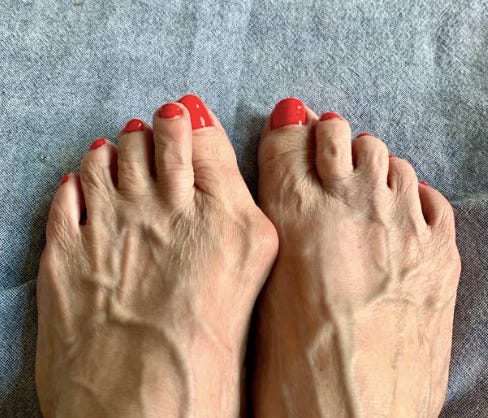
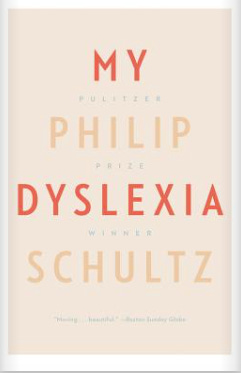
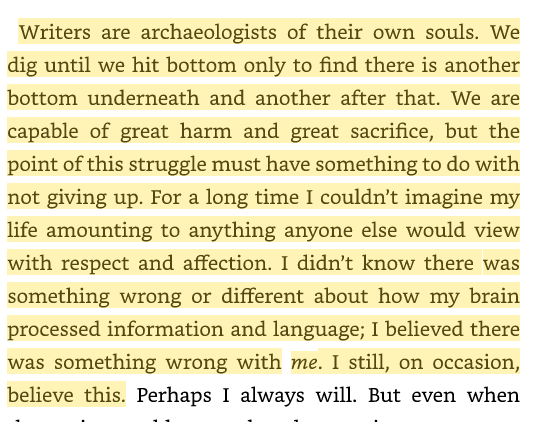
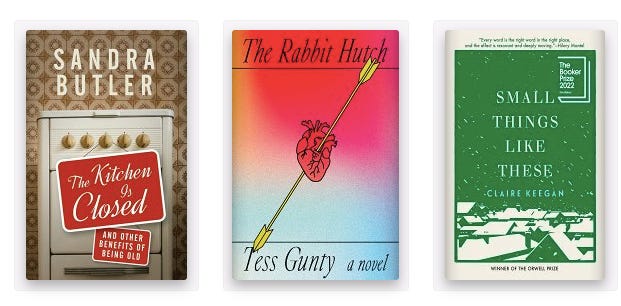
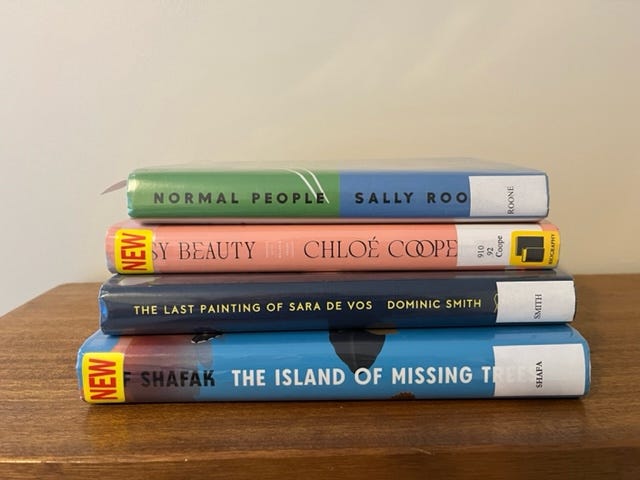
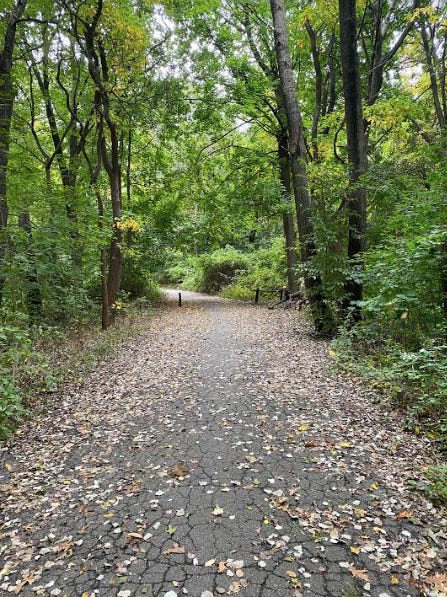
Good timing. Husband and I just sent papers to donate our bodies to the medical school at Missouri university.
There’s nothing to deduce from my body. Despite how I might feel I treat myself, I’m well cared for. My c section scar and belly are testament to the two beautiful human I birthed. All things considered, pretty good. Maybe I’ll do a deeper dive. This is interesting. But as someone who does do autopsies, the real story is on the inside. How do the lungs look? Emphysema? Cancer? Is the heart enlarged? Fatty liver?
In the course of writing a story and thinking about their society, I’ve imagined what they believe about getting older. I think you become more and more yourself. You get closer and closer until there’s nothing to say, just to be.